 Scotland
Scotland
 Scotland
Scotland
It was now time to change flags, don our kilts and pack our haggis supplies and head in wee Bonnie Scotland for a dram or two...this page is just an overall look at the border, a bit of Scottish history and some pictures of small towns I can't remember the names of...
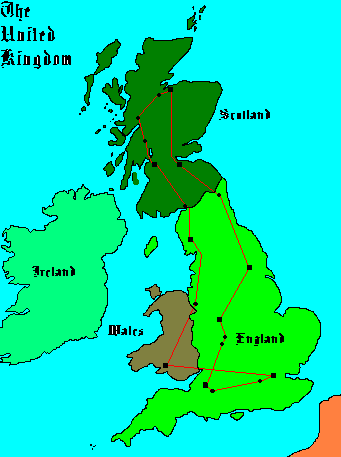
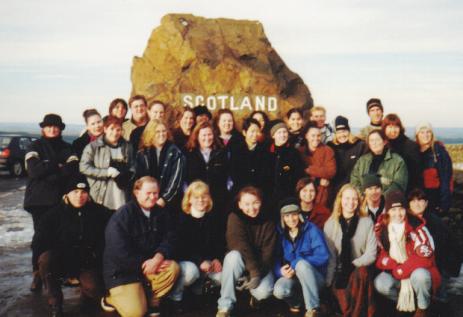
England/Scotland Border, 16.01.00 AD
At last the border of Scotland...where i've wanted to go since I was a wee little boy...it is also the home of the ancestor's on my father's side - Clan Hume...here is the stone that marks the border - together with the Contiki group...
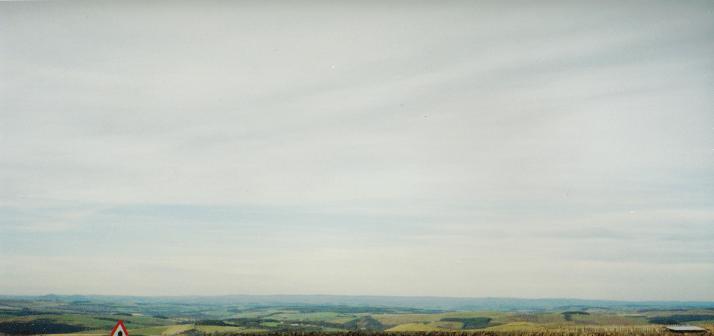
Border looking into Scotland, 16.01.00
With the white capped mountains in the distance this is Scotland...
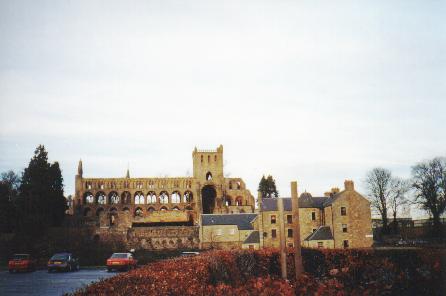
A Church Nth of Edinburgh, Scotland, 18.01.00 AD
This was taken at a lavatory stop somewhere, and im still not sure where...it looked good so I took it...other than that I can offer no other information except that the toilets were perhaps the worse smelling I have ever smelled...
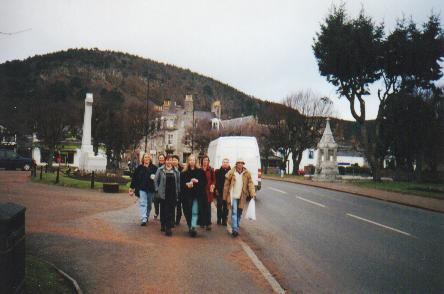
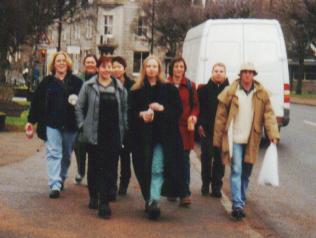
Somewhere between Inverness and Edinburgh, Scotland, 18.01.00 AD
I insisted that a Reservoir Dogs photo be taken of a few people in the group...and damn those who smiled in this picture!
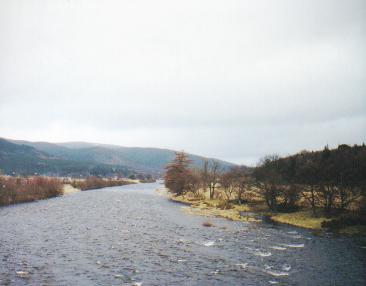
Scottish Rivers, 18.01.00 AD
I fell in love with these rivers, those of which you simply have to take a photo of...
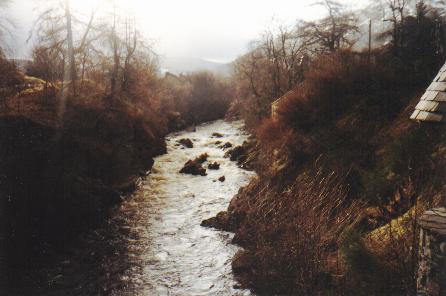
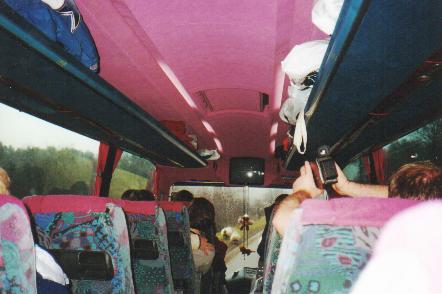
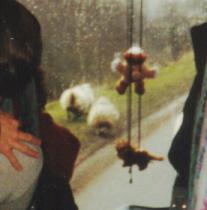
Sheep somewhere in Scotland
Just thought i'd take this on the fly.
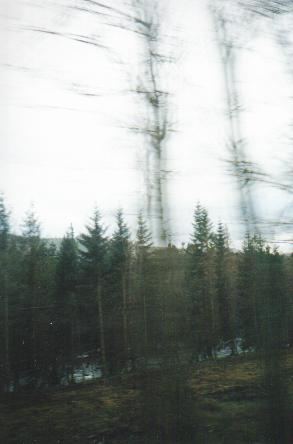
Tree's on a loch...
Also taken on the fly and from the bus...
Origins
Scotland was thought to have been inhabitated first by two tribes being the Celts and the Picts, though this is contential as there were tribes which made up Skara Brae in the northern Islands and others. These tribes were warlike yet artistic and were considered "pagan" when christianity reared its ugly head. It is because of this that a lot of them were slaughtered in the Roman Invasion. At this time Scotland was comprised of kingdoms beings the Celts, Angles, Britons, Picts and Scots (Scotti) who formed together in the 6th Century to make Scotland, and it is a mixture of all of these which created the Scottish people.
It took quite some time before Scotland became at all prominent. The first major date for prominence was in 1035, when Duncan I became King of Scotland. Scotland was heavily influenced and governed by England (their king was often no more than a "vassal"), and depending on the monarch this could be very cruel. It is this that sparked the cry for independence all throughout Scotland. Small scale Scottish risings were happening all over the country in the 12th Century, those as these were small were often put down quickly.
It wasn't until the late 13th Century that things really heated up for the first time. John Balliol, King of Scotland, had defied the English King - Edward I, by securing a treaty with the French, the natural enemies of England. Balliol wasn't at all a very steadfast character and interchanged allegience to the King quite a lot. But this treaty had angered the King, so Balliol was thrown into jail. 13 Claimants to the Scottish throne emerged, all who then engaged in a political war which tore Scotland apart.
It was during this time, that two men rose to prominence in the war versus England. These were William Wallace and Andrew Murray. Wallace rose, when he and his brother Malcolm were outlawed by the Sheriff of Lanark for not paying homage to the King. Wallace slew the Sheriff and then began a life of revolt in the lower regions of Scotland. Meanwhile Murray had captured several castles in the north and had basically crippled the English factor there. The two joined up to fight the English at Stirling Bridge and won through the use of ingenious tactics. Murray, sadly died as a result of wounds of this battle two months later, so Wallace was now the sole protector of Scotland. Wallace was eventually defeated at Falkirk and captured several years later outside Glascow, he then suffered all the indignities of a traitor's execution in 1305. Wallace was to give rise to another man, Robert Bruce, one of the 13 claimants to the throne. Bruce, after several defeats managed to defeat the English at Bannock Burn in 1314. This was not to be the end of the trouble for the Scots, as you will see in a later section, regarding Bonnie Prince Charlie.
Unfortunately, this section was taken up by war, and that is because it was like we eat and drink today a part of life...if it wasnt against the English it was against each other...
Scotland today remains one of the central hubs of tourism for all of the United Kingdom, many flock to see its unique culture, castles and stories of great people. The attitudes of the Scots havent changed much with a thousand years either, still feeling anti-English, though these levels would never again spark war. It is at the moment gaining independence by the day, with the installation of a Scottish parliament amongst other things.
This was but a small section of Scottish history, detailing the Wars of Independence against England and the origins of the Scots. Because it is such a large area to write here, to find out more you can email me and ill gladly sent the info - or post it up on here. Keep looking at the history sections of the rest of the Scottish towns, as there is more info there.
On to the capital of Scotland, Edinburgh...
Please sign ze Guestbook mon ami's...
The Benjamina Fund of The Judean People's Front